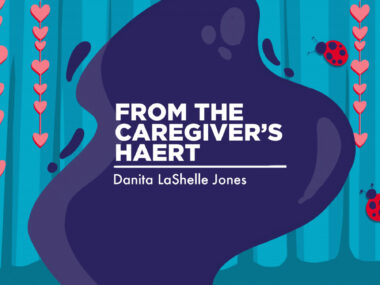Even when you do everything right, things can still fall apart
The key, this caregiver says, is learning how to handle negative outcomes
Written by |

The butter was at room temperature, the eggs were properly separated, the milk was measured correctly, and the oven was at the perfect temperature.
My mother was about to make her famous pound cake. Although I wasn’t a cake person growing up, I loved it when she made pound cake for dessert.
But baking this delicious treat came with rules: No running in the house, no slamming doors, and no opening the oven door to see if it was ready. Even though the oven had a light, she didn’t want us to turn it on. Baking the cake was a meticulous process; the whole thing would fall if anything went wrong.
This particular time, my mother did everything as she had done before. All the rules were in place, and our entire family anticipated that the amazing smell would begin wafting through the house.
But halfway through the cooking time, we couldn’t smell anything.
When the cake finally came out of the oven, it looked terrible. It had done what my mother had feared: fallen.
“Oh, goodness,” she said in a not-so-fretful tone. “Well, it happens.”
She was taking it well. Me? Not so much.
I didn’t understand. Although my mother did everything correctly, the cake-baking attempt had utterly failed. How can you do everything you’re supposed to do, follow all the instructions, and still not get the desired results?
Years later, I still have a hard time processing this concept.
Finding the good, no matter the result
When our daughter, whom we lovingly call Ladybug, was diagnosed with hereditary angioedema (HAE), it came with a lot of instructions and what could be perceived as a lot of rules.
There were certain medications she couldn’t take, certain activities she couldn’t engage in, and proper ways to administer the medicine she needed.
And I did all of that. Because I took copious notes and had numerous hours of training, I assumed that if I adhered to everything, Ladybug would have minimal flares and zero swells and only be inconvenienced by emergency room and hospital visits if they were essential.
That was not the case.
The nature of HAE means that even if you do everything right, everything may still go wrong. Emergency meds may not work, hospital visits may last longer, and absences from school may balloon to a large number.
But the funny thing about things going wrong, even when you did everything right, is that it doesn’t have to ruin everything.
When my mother’s cakes occasionally fell, they were still pretty delicious. That was my father’s favorite type of cake. If Ladybug has a bad health week or month, we still find ways to bond, laugh, or create. We can turn the worst results into some of the best memories.
As a caregiver of a child with a chronic illness, I’ve begun to let go of the idea that perfect execution of needs leads to a healthy child. Instead, I’m still learning to find the good, no matter how challenging the situation.
Note: Angioedema News is strictly a news and information website about the disease. It does not provide medical advice, diagnosis, or treatment. This content is not intended to be a substitute for professional medical advice, diagnosis, or treatment. Always seek the advice of your physician or other qualified health provider with any questions you may have regarding a medical condition. Never disregard professional medical advice or delay in seeking it because of something you have read on this website. The opinions expressed in this column are not those of Angioedema News or its parent company, Bionews, and are intended to spark discussion about issues pertaining to angioedema.






Leave a comment
Fill in the required fields to post. Your email address will not be published.